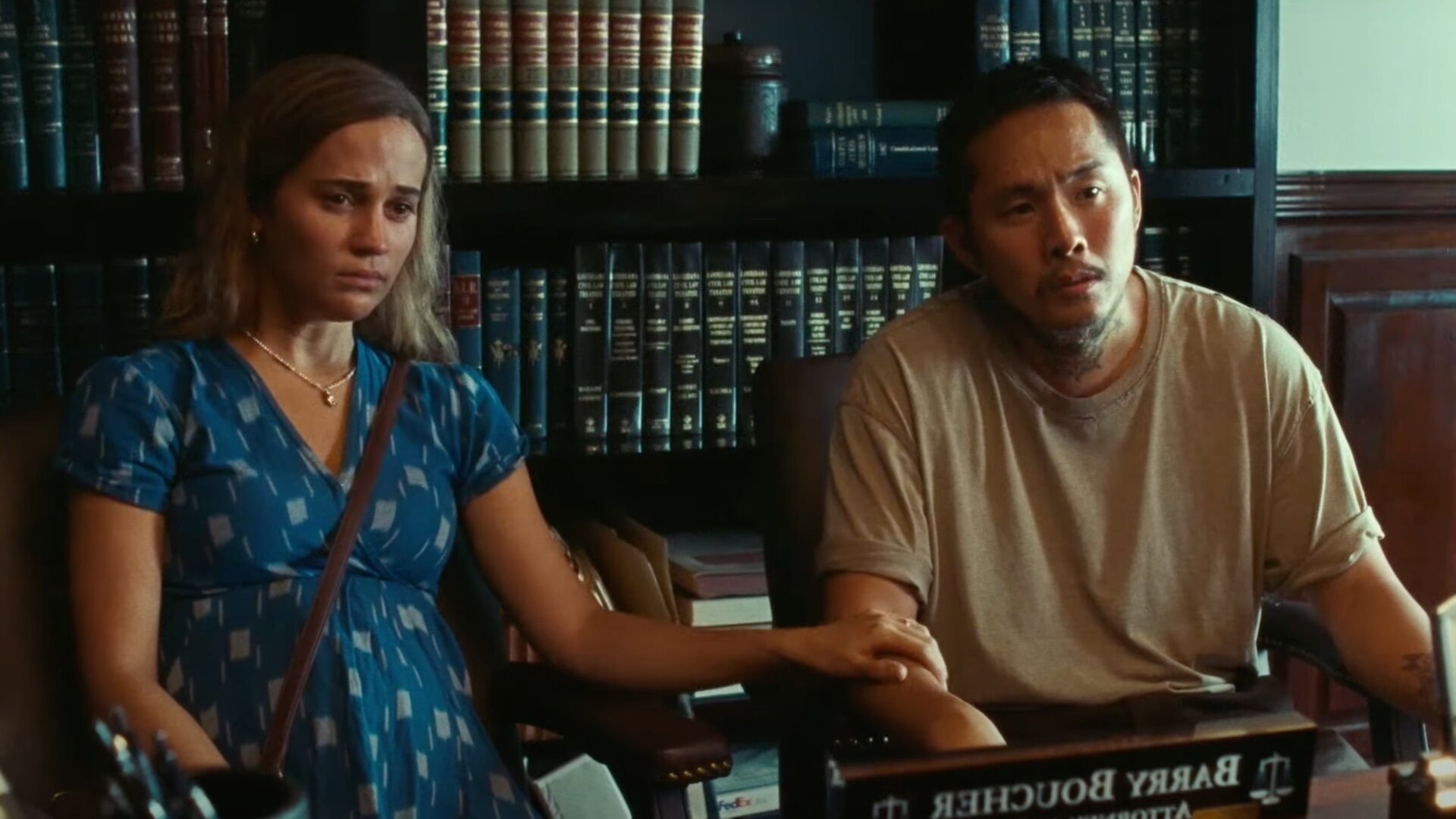A lot of Oscar films usually advocate for a particular cause. Something important, highlighting a segment of the population usually not covered by Marvel or other comic book films. But while the cause is just, the moviemakers push the strains of credibility to extract as many tears as possible out of the audience. That’s the Oscar bait Blue Bayou is, hammering home its message while giving you Oscar laden tissues to wipe your eyes with.
Justin Chon pulls triple duty here, writing directing, and starring as Antonio Leblanc. Being one of the very few Asian Cajuns in New Orleans, Antonio stands out wherever he goes. But he’s happy there: he’s married to Kathy (Alicia Vikander), and about to have a kid with her, while happily raising Kathy’s daughter Jessie (Sydney Kowalske) as his own. Antonio’s happy little world gets turned upside down when two cops (Mark O’Brien and Emory Cohen) misinterpret Antonio and Kathy’s argument as a domestic violence situation; Antonio ends up in police custody, where Immigration and Customs Enforcement (ICE) realizes he’s not a US citizen. Antonio then faces deportation to a country he knows nothing about, with very few options to fight back.
Blue Bayou’s heart is in the right place. As triggering as the phrase “undocumented immigrant'” can be to others, this movie is a good reminder that people focus way too hard on the undocumented part of that statement and not the immigrant part. They’re not monsters: they’re people just trying to get by and live a happy life, but struggling mightily to do so. In that struggle, Antonio is pushed to the brink and forced to make tough decisions that put him repeatedly in contact with law enforcement, so from the cops’ point of view, he’s a waste of space in the United States. If they would only see Antonio at home: Antonio mended Kathy and Jessie’s broken hearts (Kathy’s recovering from a messy divorce), and has made their home a place filled with love and peace. Also, he’s a good Samaritan: he strikes up a lovely friendship with Parker (Linh Dan Pham), who’s going through some equally painful personal anguish. But none of that matters in the eyes of the law, and rising costs as well as a traumatic push Antonio and Kathy’s relationship to its breaking point, further “showing” how “unnecessary” Antonio is to the US. Blue Bayou’s main goal is to humanize undocumented immigrants and their plight, and in that goal it succeeds easily.
Justin Chon must be very close to Blue Bayou’s story, because he doesn’t just want to show the plight of an undocumented immigrant. He wants the audience to feel every last piece of trauma and anguish Antonio has to go through just to stay with his family in the country he calls home. As such, Chon’s script makes sure every scene ends with the worst possible scenario occurring for him to make this part of Antonio’s life a waking nightmare. Bad characters are horrendously evil, good characters are almost saint like or preciously precocious; the movie gets way too uncomplicated by the end. Setback after setback hits poor Antonio and Kathy, to the point that the last half hour is borderline laughable at how ridiculously terrible Antonio’s life gets. So terrible in fact, that Chon almost loses the narrative control, by trying to make you cry harder and harder and harder. The saving grace are the actors, committed to the story so they give it their all. Blue Bayou is a bad casting director away from a forgettable dumped Netflix Tuesday release.
But hey, at least we get some idea of the unflattering harrowing life of these poor humans living on the fringes of society. Blue Bayou ends its undocumented immigrant empathy/advocacy with some statistics about how many people are living lives like Antonio Leblanc. I do hope that you see a movie like Blue Bayou, and it makes that wall between yourself and what you might think an “undocumented immigrant” to slowly come down, and maybe help your heart grow a little more for these poor people, like mine did.

